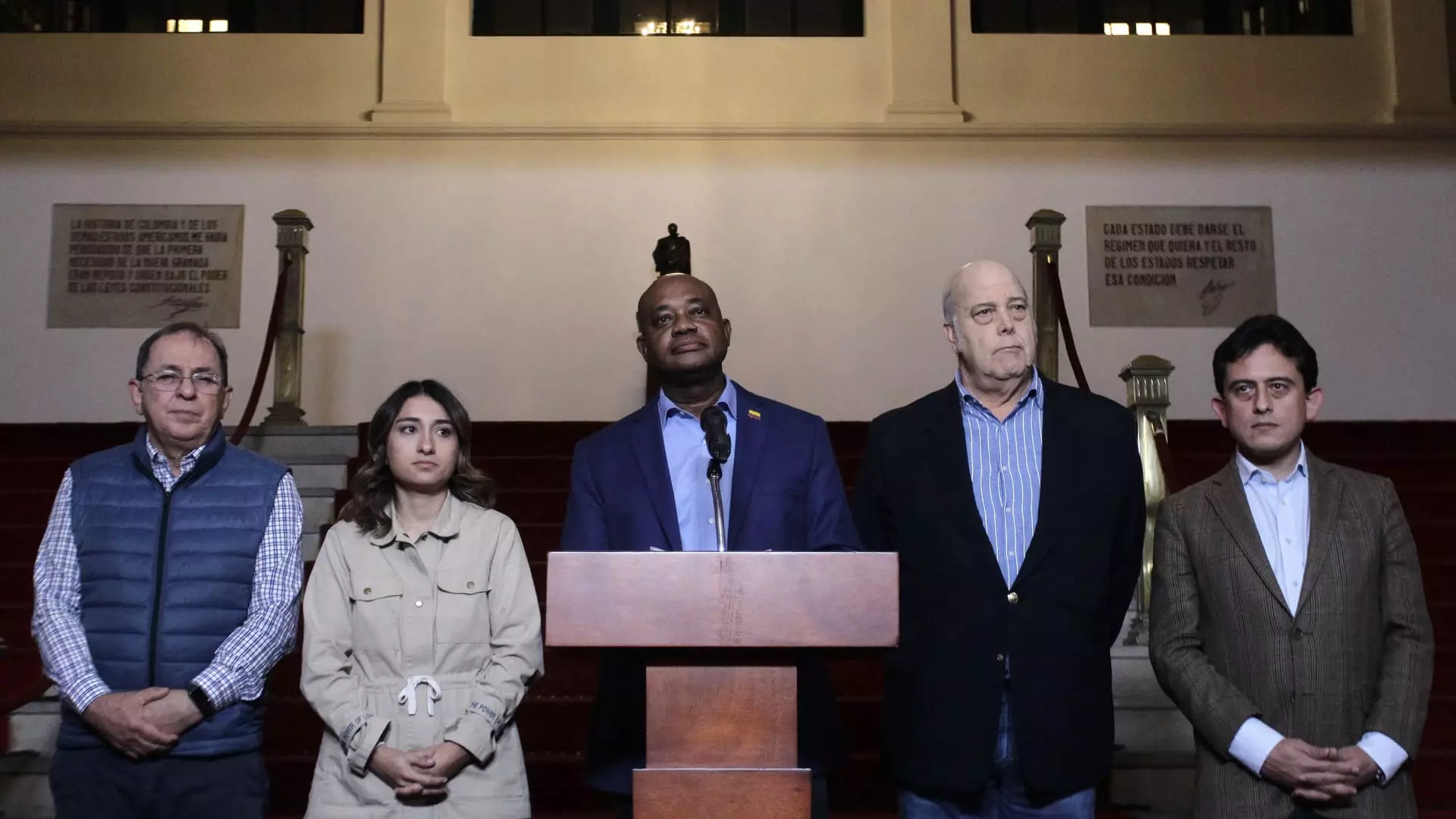In an unexpected turn of events, the United States and Colombia managed to avert a potential trade conflict last Sunday. This diplomatic success came after the Colombian government agreed to accept military aircraft repatriating deported migrants from the U.S., a topic that had precipitated tensions between the two nations. Emphasizing a commitment to immigration policy, the Trump administration had threatened punitive measures, stimulating fears of escalating hostilities that could affect both countries economically.
President Donald Trump has made curbing illegal immigration a cornerstone of his administration’s policy. In an aggressive push that he labeled a national emergency, Trump sought to enforce stringent measures aimed at reducing the influx of undocumented migrants into the United States. His methods included threats of tariffs against countries perceived as enabling this flow, with Colombia being at the forefront of his recent discussions. The U.S. government penned draft orders which, if enacted, would impose severe tariffs of up to 50% on Colombian exports, coupled with sanctions affecting Colombian government officials and financial institutions.
Such threats underscored the seriousness with which the current administration views immigration, yet they also unveiled the diplomatic knife-edge upon which international relations often balance. The mere contemplation of such actions highlighted the interconnectedness of trade and immigration, raising questions about the repercussions of a trade war on both economies.
Faced with aggressive U.S. tactics, Colombian President Gustavo Petro’s initial resistance was palpable. His publicized condemnation of military deportation flights highlighted his administration’s disapproval of the methods proposed by the U.S. government. The stark language used by Petro, likening the proposed actions to those reminiscent of “Nazism,” reflected both the political stakes at hand and the sensitivity surrounding national sovereignty.
However, Petro’s government demonstrated pragmatism, ultimately opting to engage in dialogue rather than escalating tensions. By agreeing to accept deported migrants on military aircraft, Colombia sought to diffuse the situation and avoid the imposition of crippling tariffs, illustrating a willingness to balance ethical considerations with pragmatic political realities.
The resolution of this diplomatic standoff indicates a cautious commitment to collaboration. The White House’s announcement that draft sanctions and tariffs would be held in reserve as long as Colombia complies with the agreement illustrates a precarious peace. Colombian Foreign Minister Luis Gilberto Murillo’s declaration of the situation as an “overcoming of the impasse” reflects the optimism that came with the agreement, but also underscores the fragility of this diplomatic arrangement. Both nations now look towards implementation, with Colombian officials preparing to facilitate the return of their citizens from the U.S.
Yet, the threat of revisiting punitive measures looms if the agreement falters, putting Colombian authorities in a difficult position as they navigate the complexities of domestic expectations and international obligations. This situation exemplifies the delicate balancing act required in international diplomacy, particularly around contentious issues like immigration.
The recent events between the U.S. and Colombia reflect broader themes in international relations, showcasing the interplay between domestic policy and foreign diplomacy. As the largest trading relationship in Latin America, the U.S.-Colombia dynamic continues to illustrate how trade and immigration are inextricably linked. With Colombia being a critical partner for the U.S. in Latin America, the implications of this agreement extend beyond immediate concerns, potentially stabilizing bilateral relations in an era characterized by upheaval.
However, the sustainability of this agreement remains uncertain. The U.S. government’s immigration policies continue to evolve under Trump, who has signaled that further actions could be taken against other nations should they not align with his immigration objectives. As both nations move forward, their governments must remain vigilant, ensuring that the agreement translates into effective policies that truly address the complexities of immigration, trade, and international collaboration.


Leave a Reply